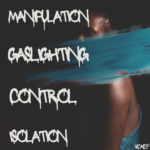Verbal abuse is defined as using words to cause someone psychological distress.
It can take the form of name-calling, threatening to leave, and constant put-downs
Gaslighting, manipulating you, and degrading your self-worth are also signs of verbal abuse.
Some signs that you are experiencing verbal abuse;
You feel like you cannot share things about yourself with them for fear that the would mock or ridicule you.
They yell at you but then suggest that you are overly sensitive or that you don’t have a sense of humor
You’re afraid to go out in public with them because of what they will say about you in front of other people.
You feel as if you are constantly being put down about how you look, think, act,dress, or talk.
Its common for verbal abusers to try to make you feel bad about yourself. They may use statements such as:
• “You’re worthless,
• You’re an embarrassment,
• You are not important to me or anyone,
• You are disgusting, you’re crazy.”
They may say things like this to lower your self-worth, in hopes of keeping you trapped in an abusive relationship. “When you have low self-esteem, you are easier to control and will tolerate intolerable behavior.
Any type of verbal abuse in a relationship is a major red flag. Whether you’re being called names, manipulated, or threatened, this type of abuse can be dangerous to your well being.
You do not need to stay in an abusive relationship, although at times you may feel trapped. Don’t give in to an abuser’s attempts to control, manipulate, and undermine you. Open up to a loved one or mental health professional about your situation so you can get the support you need.
Sometimes it can be easy to spot a controlling personality, especially when someone continuously pushes their partner to do and say things they are not always comfortable with. Manipulation, on the other hand, can be more difficult to detect. It can be subtle, like turning situations around and putting the blame on the abused partner.
If your partner constantly disagrees with you, and starts an argument whenever they see an opportunity, or if conversations and arguments seem to go round in circles, leaving you tired and drained, then these are all signs of an unhealthy relationship. People on the receiving end of these types of disagreements tend to feel like they’re walking on eggshells in order to avoid going back to the same argument again and again. We do not need to always agree on everything in a relationship, but there should be a mutual acceptance of this, rather than an atmosphere of one-upping the other or engaging in arguments you can never win.
If you feel like you are constantly on edge and walking on eggshells around your partner, or if some of these patterns feel familiar to you, you may be in an unhealthy relationship. Also, if your trusted friends and/or family are telling you that something is wrong, hear them out. They may be seeing, or hearing, something that you cannot. Remember, by setting boundaries and being honest about how something makes you feel, you can learn to empower yourself in a relationship.




0 Comments